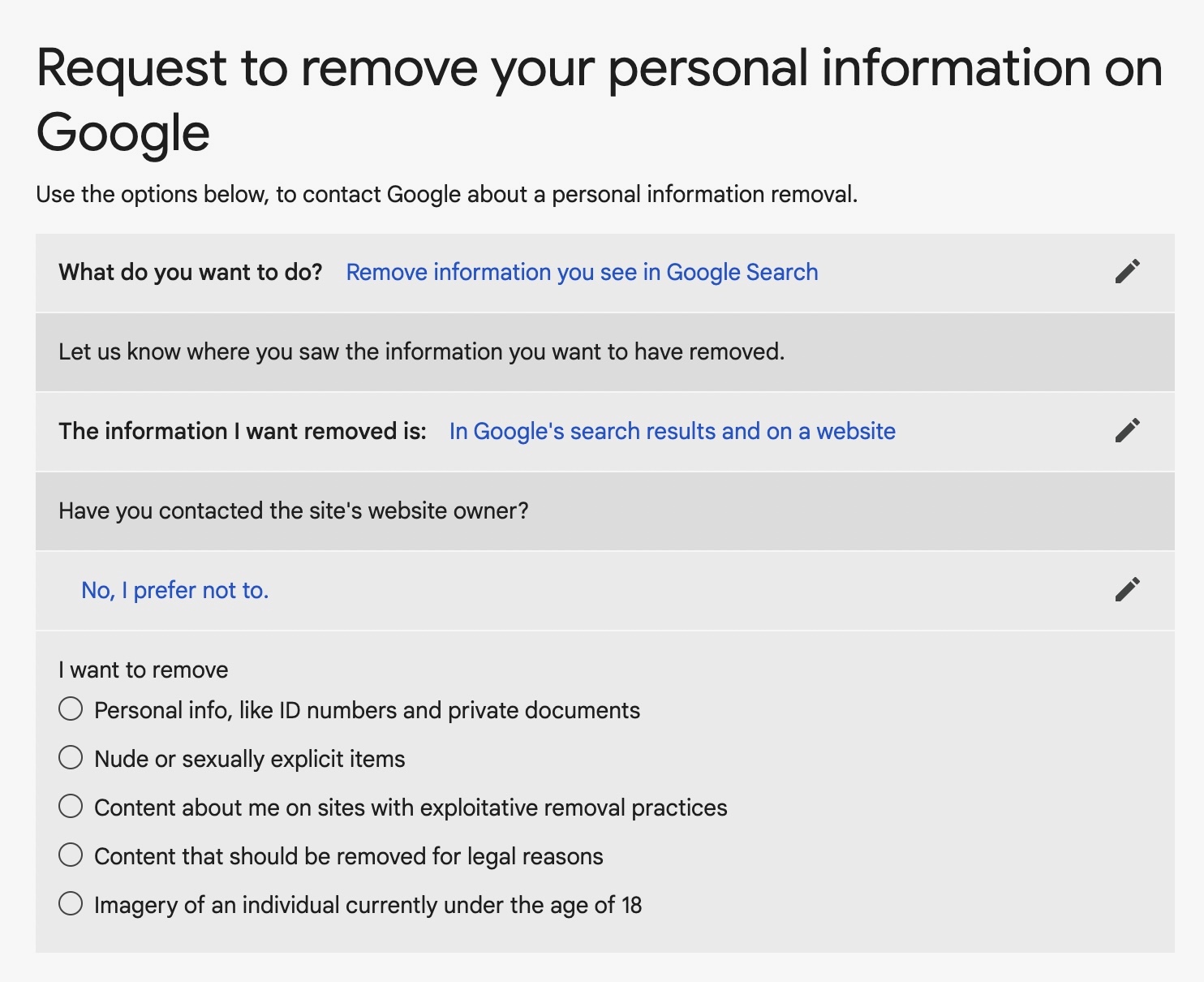As soon as one thing is on the web, it’s virtually unimaginable to take it down. However Google now makes it simpler for anybody to request the removing of their private info from Google’s personal search outcomes.
Google has been broadly towards a worldwide “proper to be forgotten,” a side of European regulation that permits EU residents to demand that corporations, together with tech giants, delete private information that’s saved about them. However that hasn’t stopped Google from giving customers the instruments to restrict what info it collects as an organization, in addition to instruments to let kids and younger adults request the removing of their pictures from Google’s picture search outcomes.
Now with its new search outcomes removing request function, you’ll be able to ask Google to take away personally identifiable about your self (or somebody you signify) from its search outcomes, like a telephone quantity, e-mail tackle, or your private home tackle, and different delicate info that may very well be used to interrupt into your on-line accounts, like login credentials. Google stated this may help victims of doxxing, the place details about an individual is revealed on-line with out their consent, usually with malicious intent.

Google helps you to request to take away your private info from its search outcomes. Picture: TechCrunch
To request to take away your search outcomes, first be aware what Google wants from you to be able to course of the removing request. Google explains what sorts of non-public info it should take away, equivalent to confidential authorities ID identification numbers, checking account numbers, pictures of ID paperwork, in addition to contact info, like telephone numbers and e-mail addresses.
Once you’re prepared, head to Google’s search outcomes removing type and hit Take away info you see in Google Search, then In Google’s search outcomes and on an internet site. At this level, Google provides you with steerage if you wish to attain out to the web site host, however in any other case you’ll be able to say No, I want to not contact the web site host and simply transfer on with the shape.
At this level Google ought to ask you what search outcomes you need eliminated. You need to choose Private information, like ID numbers and personal paperwork, then choose the sort of private info that you really want eliminated, equivalent to your contact info, personal medical paperwork or different authorities identification paperwork. From right here, it’s best to fill out the shape together with your corresponding info, together with your full identify, nation of residence, your finest contact e-mail tackle and the listing of internet addresses of your private info. You may seize the online addresses of infringing search outcomes out of your browser’s tackle bar.
The ultimate query on this type is that if your private info pertains to doxxing, which Google asks if the knowledge is “being shared with malicious, threatening, or harassing intent.” If that is so, choose Sure.
You’ll have to present the entire internet addresses the place you have got discovered your info. That may imply each the online tackle of the webpage that has your info — and the online addresses of the Google search outcomes web page. You may additionally need to take and submit screenshots of search outcomes to assist Google slim down the request to you. You may submit as much as 1,000 internet addresses at a time.
When you’re executed, test the signature type on the backside of the shape.
Keep in mind, eradicating your info from Google’s search outcomes is just not a panacea. Google’s request function is not going to routinely take away your private info from the web sites your information is hosted on, however it makes it tougher for others to find the information with out assistance from Google’s search algorithm.
Filling out the search removing type can also be not a assure that Google will take motion in your behalf. Google stated it should “consider all content material on the internet web page to make sure that we’re not limiting the supply of different info that’s broadly helpful, for example in information articles.” In instances the place your info seems a part of a public file, equivalent to a court docket submitting or a authorities web site, Google stated it wouldn’t take away these search outcomes.
